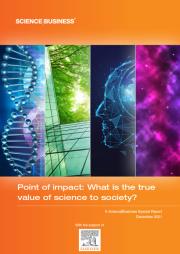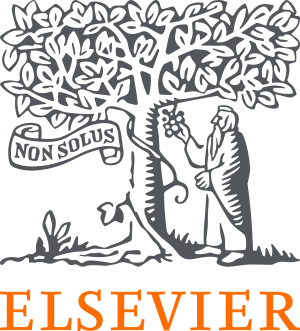With Horizon Europe now under way, public research funders can focus on how to assess the value of scientific research.
Sponsored by Elsevier.
Get your free copy

Supported by Elsevier

At a roundtable event organised by Science|Business and Elsevier, experts from the academic, business and policy sectors debated how best to assess the value of scientific research. Here are some of the key takeaways and recommendations:
Assessing the impact of research is complex. It requires a nuanced understanding of what goes into creating good research, such as funding, infrastructure and people (and the culture incentives and reward system that those people operate in). It also requires an appreciation of what the outputs of good research look like-skilled and qualified researchers, high-quality publications that add to the body of human knowledge, data and tools, patents, and broader societal outcomes.
As Horizon Europe gets underway, the European Commission should encourage experimentation and evidence-gathering in assessment so that the research community can get a better understanding of both the quality and the impact of the European scientific enterprise.
What is assessed will be determined by a range of factors: the reason for the assessment, the nature of the research, and the practical question of what can be measured in the first place. Evaluating the impact of research that is driven by curiosity, rather than a specific goal, can be particularly challenging, as the ramifications may only become apparent over the long-term. In such cases, an assessment of the quality of the research should be the priority.
At the same time, too much evaluation, or a focus on limited criteria, can pervert incentives and discourage “risky” research that could potentially be ground breaking. When assessment is tied to funding and career progression, it creates new standards and goals for researchers to pursue, so it’s important to ensure that the chosen measurements incentivise desirable behaviour, such as collaboration and co-operation, and discourage undesirable behaviour, without unintended consequences.
A perfect, out-of-the-box solution is unlikely to be achievable in the short-term, and any proposed framework would have to be adapted to meet the needs of different cultures that span research disciplines national research contexts. That’s why Europe needs to experiment with different approaches for measuring research impact at the level of institutions or ecosystems of institutions, in order to identify needs and develop workable solution
The full list of participants in the workshop Point of impact: What is the true value of science to society? held on 12 October 2021 is available here: https://sciencebusiness.net/events/point-impact-what-true-value-science-society

 A unique international forum for public research organisations and companies to connect their external engagement with strategic interests around their R&D system.
A unique international forum for public research organisations and companies to connect their external engagement with strategic interests around their R&D system.